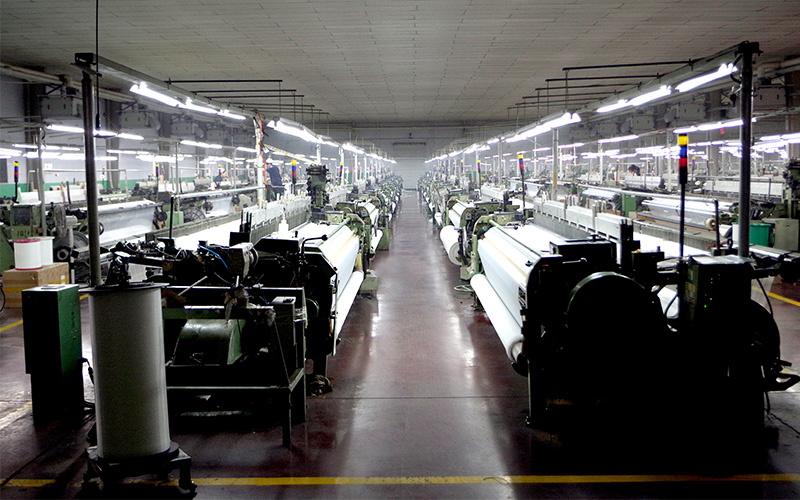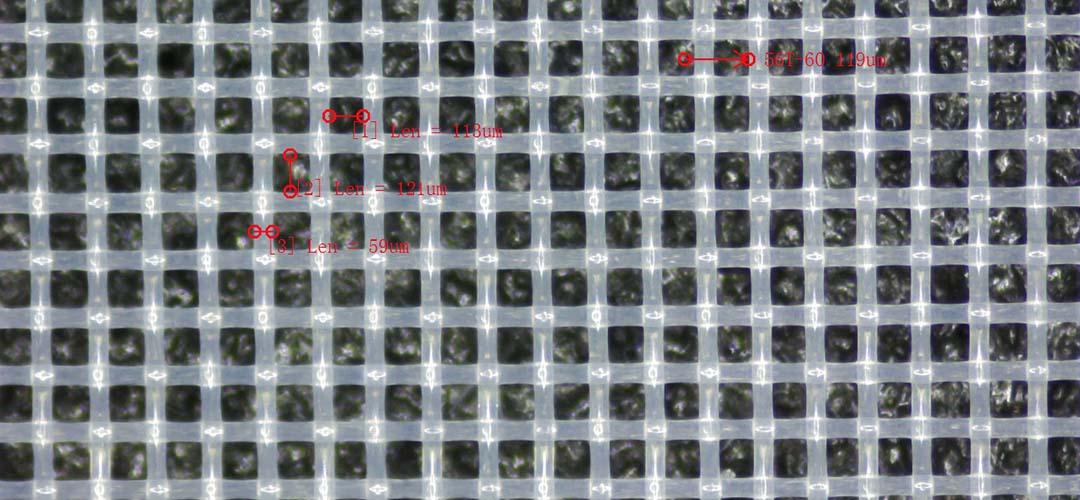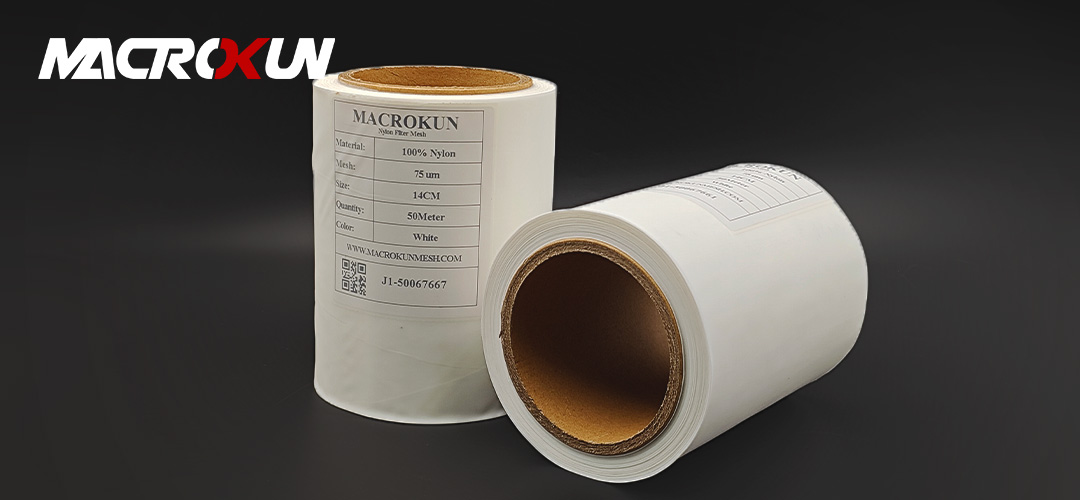Nylon mesh screens have emerged as a transformative element in the realm of 3D printing, offering a multitude of benefits that enhance both the efficiency and quality of the manufacturing process. As industries increasingly adopt additive manufacturing techniques, the integration of nylon mesh screens has proven to be a game-changer, addressing several challenges that traditional methods face. One of the primary advantages of using nylon mesh screens in 3D printing is their ability to improve material flow during the printing process. By providing a consistent and controlled environment for the extrusion of materials, these screens help to minimize clogs and ensure a smooth, uninterrupted flow of filament. This not only enhances the overall speed of production but also reduces the likelihood of defects in the final product, thereby increasing the reliability of the manufacturing process.
Moreover, nylon mesh screens are known for their durability and resistance to wear and tear. Unlike other materials that may degrade over time or become ineffective after repeated use, nylon mesh maintains its structural integrity, allowing for prolonged use without compromising performance. This durability translates into cost savings for manufacturers, as they can rely on these screens for extended periods without the need for frequent replacements. Additionally, the lightweight nature of nylon mesh contributes to its efficiency in 3D printing applications. By reducing the overall weight of the printing apparatus, manufacturers can achieve faster print speeds and lower energy consumption, further enhancing the sustainability of their operations.

Another significant benefit of nylon mesh screens is their versatility. They can be utilized across a wide range of 3D printing technologies, including Fused Deposition Modeling (FDM) and Selective Laser Sintering (SLS). This adaptability allows manufacturers to implement nylon mesh screens in various applications, from prototyping to the production of end-use parts. Furthermore, the fine mesh structure enables the filtration of particulates and contaminants from the printing materials, ensuring a higher level of purity and consistency in the final products. This is particularly important in industries such as aerospace and medical manufacturing, where precision and quality are paramount.
In addition to these practical advantages, the use of nylon mesh screens can also enhance the aesthetic quality of 3D printed items. By providing a more uniform surface finish, these screens help to reduce the appearance of layer lines and other imperfections that can detract from the visual appeal of the final product. As a result, manufacturers can achieve a higher level of detail and craftsmanship, which is increasingly important in a competitive market where consumers demand both functionality and aesthetics.
Furthermore, the implementation of nylon mesh screens in 3D printing aligns with the growing trend towards sustainable manufacturing practices. By optimizing material usage and reducing waste, these screens contribute to a more environmentally friendly production process. As businesses strive to meet regulatory requirements and consumer expectations regarding sustainability, the adoption of nylon mesh screens can serve as a valuable step towards achieving these goals.
In conclusion, the innovative use of nylon mesh screens in 3D printing offers a range of benefits that significantly enhance the manufacturing process. From improving material flow and durability to providing versatility and aesthetic quality, these screens are proving to be an essential component in modern manufacturing. As industries continue to evolve and embrace new technologies, the role of nylon mesh screens will undoubtedly expand, paving the way for even greater advancements in 3D printing and beyond.
Nylon mesh screens have long been a staple in the screen printing industry, providing a reliable and versatile tool for transferring designs onto various surfaces. However, in recent years, manufacturers have found innovative ways to utilize nylon mesh screens to improve efficiency and productivity in their operations.
One of the key benefits of nylon mesh screens is their durability and longevity. Unlike traditional screens made of metal or other materials, nylon mesh screens are lightweight and flexible, making them easier to handle and less prone to damage. This durability allows manufacturers to use the same screen for multiple print runs, reducing the need for frequent replacements and saving time and money in the long run.

In addition to their durability, nylon mesh screens also offer superior ink flow and resolution, resulting in higher quality prints with crisp, clean lines and vibrant colors. This improved print quality not only enhances the overall appearance of the finished product but also reduces the likelihood of errors or defects, further streamlining the production process.
Furthermore, nylon mesh screens can be easily customized to meet the specific needs of each printing job. Manufacturers can choose from a wide range of mesh sizes and thread counts to achieve the desired level of detail and opacity in their prints. This flexibility allows for greater creativity and customization in the design process, giving manufacturers the ability to produce unique and eye-catching products that stand out in the market.
Another innovative use of nylon mesh screens in modern manufacturing is their application in 3D printing. By using a combination of nylon mesh screens and specialized printing techniques, manufacturers can create intricate and complex 3D structures with precision and accuracy. This technology opens up new possibilities for product design and development, allowing manufacturers to produce highly detailed and customized parts and components for a wide range of industries.
Additionally, nylon mesh screens are also being used in the production of electronic devices, such as smartphones and tablets. By incorporating nylon mesh screens into the manufacturing process, manufacturers can create high-quality displays with improved clarity and resolution. This technology not only enhances the user experience but also reduces production costs and lead times, making it a cost-effective solution for electronics manufacturers.

Overall, the innovative uses of nylon mesh screens in modern manufacturing have revolutionized the way products are designed, produced, and marketed. By leveraging the durability, flexibility, and customization capabilities of nylon mesh screens, manufacturers can improve efficiency, quality, and productivity in their operations, ultimately driving growth and success in today’s competitive market. As technology continues to evolve, we can expect to see even more creative applications of nylon mesh screens in various industries, further pushing the boundaries of what is possible in modern manufacturing.
Nylon mesh screens have long been a staple in the manufacturing industry, particularly in filtration systems. These versatile screens are known for their durability, flexibility, and ability to withstand high temperatures and harsh chemicals. In recent years, manufacturers have found innovative new ways to utilize nylon mesh screens in a variety of applications, leading to improved efficiency and cost savings.
One of the most common uses of nylon mesh screens in modern manufacturing is in filtration systems. These screens are used to separate particles of different sizes, allowing only the desired particles to pass through while trapping larger particles. This is essential in industries such as food and beverage, pharmaceuticals, and chemicals, where the purity of the final product is crucial.
Nylon mesh screens are also used in wastewater treatment plants to remove impurities and contaminants from water before it is released back into the environment. The screens can be customized to filter out specific pollutants, making them an essential tool in maintaining water quality and protecting the ecosystem.
In the automotive industry, nylon mesh screens are used in air and oil filters to remove dirt, debris, and other contaminants from the engine. This helps to prolong the life of the engine and improve overall performance. Nylon mesh screens are also used in fuel filters to ensure that only clean fuel reaches the engine, reducing the risk of damage and improving fuel efficiency.
Another innovative application of nylon mesh screens is in the production of medical devices. These screens are used to filter out bacteria and other pathogens during the manufacturing process, ensuring that the final product is safe for use. Nylon mesh screens are also used in surgical instruments to prevent the spread of infections and improve patient outcomes.
In the electronics industry, nylon mesh screens are used in the production of printed circuit boards (PCBs). These screens are used to apply solder paste to the PCB, ensuring precise and consistent application. Nylon mesh screens are also used in the production of electronic components to protect delicate parts from damage during the manufacturing process.
In the textile industry, nylon mesh screens are used in screen printing to create intricate designs on fabric. These screens are durable and flexible, allowing for precise and detailed printing. Nylon mesh screens are also used in the production of textiles to create unique patterns and textures.
Overall, the innovative uses of nylon mesh screens in modern manufacturing have revolutionized the industry, leading to improved efficiency, cost savings, and product quality. As technology continues to advance, we can expect to see even more creative applications of nylon mesh screens in a wide range of industries.
Nylon mesh screens have long been a staple in the textile manufacturing industry, providing a versatile and durable solution for a variety of applications. From filtering to printing, these screens have proven to be an essential tool for enhancing product quality and efficiency in the production process.
One of the most common uses of nylon mesh screens in textile manufacturing is in the printing process. Screen printing is a popular method for applying designs and patterns to fabrics, and nylon mesh screens play a crucial role in this process. The fine mesh of the screen allows for precise and detailed designs to be transferred onto the fabric, resulting in high-quality prints that are both vibrant and long-lasting.
In addition to printing, nylon mesh screens are also used for filtering in textile manufacturing. Whether it’s removing impurities from dyes or separating different components in a mixture, these screens are an effective way to ensure that only the highest quality materials are used in the production process. By using nylon mesh screens for filtering, manufacturers can improve the overall quality of their products and reduce the risk of defects or inconsistencies.
Another innovative use of nylon mesh screens in modern manufacturing is in the creation of 3D textiles. By layering different materials and textures onto a nylon mesh screen, manufacturers can create intricate and unique fabrics that are both visually appealing and functional. This technique allows for endless possibilities in terms of design and creativity, making it a popular choice for designers looking to push the boundaries of traditional textile manufacturing.
Furthermore, nylon mesh screens are also used in the production of technical textiles, which are fabrics that are designed for specific applications such as medical or industrial use. These textiles require a high level of precision and durability, and nylon mesh screens are able to meet these requirements with ease. By using these screens in the manufacturing process, manufacturers can create technical textiles that are not only high-quality but also highly functional and reliable.
| Model | Mesh Size (/cm) |
Mesh Size (/inch) |
Thread Dia (um) |
Mesh Opening (um) |
Thickness (um) |
Net Weight (g/m2) |
| NL4/1950 | 4 | 10 | 550 | 1950 | 1100 | 307 |
| NL5/1500 | 5 | 13 | 500 | 1500 | 1000 | 318 |
| NL6/1267 | 6 | 15 | 400 | 1267 | 800 | 244 |
| NL7/1079 | 7 | 18 | 350 | 1079 | 700 | 218 |
| NL8/900 | 8 | 20 | 350 | 900 | 700 | 249 |
| NL9/861 | 9 | 23 | 250 | 861 | 500 | 143 |
| NL9/811 | 9 | 23 | 300 | 811 | 600 | 206 |
| NL10/750 | 10 | 25 | 250 | 750 | 500 | 159 |
| NL10/700 | 10 | 25 | 300 | 700 | 600 | 229 |
| NL12/583 | 12 | 30 | 250 | 583 | 500 | 191 |
| NL12/533 | 12 | 30 | 300 | 533 | 600 | 274 |
| NL14/514 | 14 | 36 | 200 | 514 | 340 | 142 |
| NL16/425 | 16 | 40 | 200 | 425 | 340 | 160 |
| NL20/350 | 20 | 50 | 150 | 350 | 255 | 113 |
| NL20/300 | 20 | 50 | 200 | 300 | 340 | 200 |
| NL24/267 | 24 | 60 | 150 | 267 | 255 | 135 |
| NL28/237 | 28 | 70 | 120 | 237 | 204 | 101 |
| NL30/213 | 30 | 76 | 120 | 213 | 204 | 110 |
| NL32/213 | 32 | 80 | 100 | 213 | 170 | 80 |
| NL36/178 | 36 | 90 | 100 | 178 | 170 | 90 |
| NL40/150 | 40 | 100 | 100 | 150 | 170 | 100 |
| NL43/153 | 43 | 110 | 80 | 153 | 136 | 70 |
| NL48/128 | 48 | 120 | 80 | 128 | 136 | 77 |
| NL56/119 | 56 | 140 | 60 | 119 | 102 | 50 |
| NL64/96 | 64 | 160 | 60 | 96 | 102 | 58 |
| NL72/89 | 72 | 180 | 50 | 89 | 85 | 45 |
| NL80/75 | 80 | 200 | 50 | 75 | 85 | 50 |
| NL100/57 | 100 | 250 | 43 | 57 | 73 | 46 |
| NL110/48 | 110 | 280 | 43 | 48 | 73 | 52 |
| NL120/48 | 120 | 300 | 35 | 48 | 60 | 37 |
| NL120/40 | 120 | 300 | 43 | 40 | 73 | 55 |
| NL130/42 | 130 | 330 | 35 | 42 | 60 | 40 |
| NL130/34 | 130 | 330 | 43 | 34 | 73 | 61 |
| NL140/36 | 140 | 350 | 35 | 36 | 60 | 43 |
| NL157/25 | 157 | 400 | 43 | 25 | 73 | 74 |
| NL180/20 | 180 | 450 | 39 | 20 | 66 | 68 |
| NL200/15 | 200 | 500 | 39 | 15 | 66 | 76 |
| NL220/10 | 220 | 550 | 39 | 10 | 66 | 84 |
| NL240/5 | 240 | 600 | 39 | 5 | 66 | 91 |
Overall, the innovative uses of nylon mesh screens in modern manufacturing have revolutionized the textile industry, allowing for greater creativity, efficiency, and quality in the production process. Whether it’s for printing, filtering, or creating 3D textiles, these screens have proven to be an essential tool for manufacturers looking to enhance their products and stay ahead of the competition.
In conclusion, nylon mesh screens have become an indispensable part of modern textile manufacturing, providing a versatile and reliable solution for a wide range of applications. By utilizing these screens in innovative ways, manufacturers can enhance the quality of their products, improve efficiency in the production process, and push the boundaries of traditional textile manufacturing. With their durability, precision, and versatility, nylon mesh screens are sure to continue playing a key role in the future of the textile industry.
Pre: Waterproof Milky Inkjet Transparency Paper Film for Silk Screen Printing
Next: Where to Use 400 Micron Nylon Mesh for Effective Filtration

MACROKUN has established long-term and stable cooperative relations with many transportation companies such as China Post, DHL, FEDEX, USPS, UPS, etc. Of course, MACROKUN can also provide air and sea transportation. The powerful logistics system enables all MACROKUN'S Printing Mesh, Filter Mesh and Filter Bags and so on to be easily and efficiently transported to any place. For quotes and inquiries, please email our sales team.





